I first met John Crye through a media company in Los Angeles. He has deep roots in theater and film, which covers experience as a writer, producer, actor, and director. For more than a decade, John was Creative Director of Newmarket Films, working in the development, acquisition, production, and distribution of such independent classics as Whale Rider, Memento, Donnie Darko, Monster, and The Prestige.
A founding member of the filmmaker’s collective, Fewdio, John produced The Nightmare House web series, and also wrote and directed several episodes. He helped launch Wrekin Hill Entertainment, with whom he acquired and released such films as Peter Weir’s The Way Back and Hesher, starring Joseph Gordon-Levitt. Since 2011, John has been producing and directing under his own banner, SharpCrye. Chance, the latest project, is a Family Drama based on a true story, starring Matthew Modine. They are in post-production now and planning a film festival run. He is also publishing an online serialized Fantasy Adventure novel entitled, The Elect Stories. His new company, True Development, offers coaching and editing services to screenwriters.
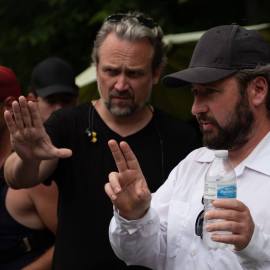
Having worked with John on two projects, I know firsthand that he is multi-talented, possesses several lifetimes worth of knowledge and experience, and is a highly skilled mentor. I am thrilled that he agreed to do the following interview:
ROBIN: Would I be correct in saying that visionary films are taking center stage? I’m thinking of The Shape of Water, Black Panther, and Dunkirk specifically. In the broadest terms, they seem to share roots in mythology, and they explore social or personal evolution (devolution). Is there something more that you, as a filmmaker would say about this?
JOHN: I think that cinema progresses through cycles like everything else. I agree that we are seeing a spate of films right now that share a sensibility, a reaction to the “make or break” times we are living in. Many of us are feeling like we are living through times that will either be the end of society, perhaps of humanity, or a bold new beginning. Artists are feeling those same things and expressing them. I’m happy to see that so many of these reactions are hopeful.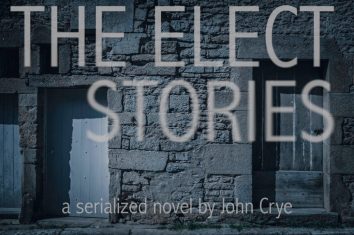 ROBIN: What does it mean to “develop” a film project? Film studios used to do this, right?
ROBIN: What does it mean to “develop” a film project? Film studios used to do this, right?
JOHN: Development is just the Hollywood term for the process that all writers engage in: nurturing a story idea, exploring its potentials, and then crafting the language that expresses the story best for the given format. The important difference is that development is always done with at least one source of feedback, whether an editor, producer or executive. As with most film industry conventions, development started in the studios, back in the days when an entire staff of screenwriters were kept under contract to meet the high production demand. By the heady days of the mid-1990’s, development had become a boondoggle, a vaguely defined line item where outrageous wastes of money could be hidden or excused away. Development’s value as a refining tool for the writer, and as protection for the producer, was diminished to the point that it has become little more than a trite curse: “development hell.”
ROBIN: You were with Newmarket Films when they acquired rights to Whale Rider (2003). For those who haven’t seen it, I wholeheartedly recommend it! It’s the story of a young girl whose destiny as a leader clashes with a Maori chief who holds that males only can ascend to chiefdom. What intrigued you about the story?
JOHN: I think almost everyone has experienced the pain of rejection or of being an outsider at some point in their lives. I have. If you haven’t felt it, perhaps you’ve feared it. The girl in the story, Pai, wants nothing more than the love of her grandfather, and the yearning that Keisha Castle-Hughes expresses in her performance is so palpable that I ached watching it. I do every time.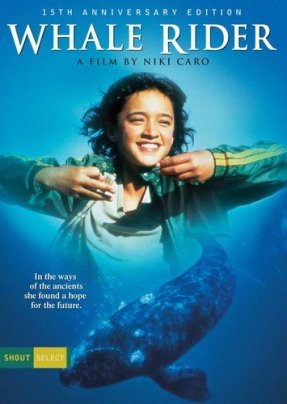
ROBIN: Apart from writing novels that distinguish themselves, how can authors best develop stories that adapt to film?
JOHN: Well, those may be two different animals entirely. Writing a distinguished novel is the finest goal a novelist can set for herself. Developing stories that adapt to film, on the other hand, requires stepping away from some of the elements and techniques that might otherwise make for a distinguishing novel. The stories that work best for developing into screenplays tend to follow those same rules that Aristotle set out in his Poetics, namely the unities of action, place and time. Intrinsic dramatic values like tension and suspension of disbelief are more effective in these confines. Cinematic stories tend to be plot-driven, as well, since the audience witnesses the characters actions without being privy to inner monologue. In other words, stories where one or a few characters take clear actions that affect a dramatic change within a limited time frame.
ROBIN: In your recent newsletter, you referred to yourself as a “personal trainer for writers.” Would you like to say more about that?
JOHN: Procrastination, negative self-talk, undisciplined work habits… these things destroy a writer’s productivity and, ultimately, their creativity. More than simply being an editor or story analyst, I act as a coach, helping the writer develop better habits and improve their skills.
ROBIN: Do you work with unpublished writers?
JOHN: I do! While many of my clients are professional screenwriters who need a coach to keep them hustling and on their game, I also work with new writers. My True Development service can function as a one-on-one screenwriting course. I walk the client through the process from concept to finished first draft using the same methods that I have honed over the past 23 years in independent film.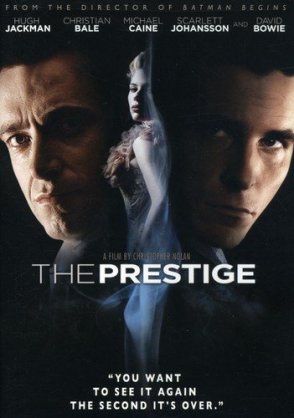 ROBIN: Can you name a few deal breakers? Qualities in a story that will guarantee a quick “pass” on a producer’s part?
ROBIN: Can you name a few deal breakers? Qualities in a story that will guarantee a quick “pass” on a producer’s part?
JOHN: That somewhat depends on the company or producer. For instance, most of the films that I acquired, developed or produced for Newmarket were passed on by other companies at some point. I was trying to think of a story element that would be a no-go across the board and I honestly can’t think of one. Successful films have been produced from the least likely stories. All I can say is take the time to research who you are submitting your work to and ensure that your material is a good fit for what they do. (And be honest with yourself about that.)
The collaborative nature of film is the double-edged sword that invigorates some and infuriates others. It is important to remember that the screenplay is not a finished work, it is a blueprint for a work to be created by a team of other artists. This is not to diminish the screenwriter’s value. No good thing can be constructed from a faulty plan and, indeed, the structural elegance and the power of the dialogue is often what we respond to as audience and those things are the purview of the screenwriter.
ROBIN: Say a producer, director, or studio shows interest in your adaptation. What happens next?
JOHN: Let the negotiations begin! Hopefully, they are coming to you or your reps with an offer.
ROBIN: What do screenwriters generally get paid?
JOHN: The WGA minimum for an original screenplay is (at the time of this interview) $71,236, or roughly 1.4% of the budget on a film of around $5M. Non-WGA writers get significantly less, and “star” writers negotiate for more.
ROBIN: Must writers have an agent or talent manager in order to sell a screenplay?
JOHN: No, though the writer will want someone skilled to handle negotiations on their behalf.
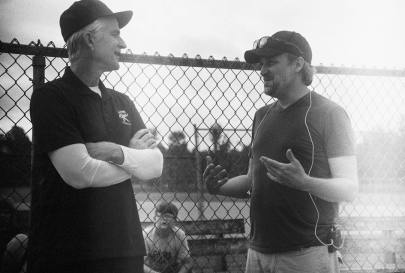
ROBIN: What do authors do if they want someone else to adapt their novel?
JOHN: The first step is to think very closely about what kind of movie you’d want your adapted novel to be, or at least to identify those kinds of movies you don’t want it to be. The second step is to discuss the story with a few screenwriters until you find one whose vision of the adaptation matches your own (which is why you need to do some envisioning of your own first.) Work closely with the screenwriter on a scene-by-scene treatment, so you can assure that you are on the same page before they go to draft. If you don’t know any screenwriters personally, try contacting the local film commission of your nearest large city. They should be able to provide some guidance, if not an actual list of writers in the area. You can also try the writing or film departments of a local college or university. Failing that, head to a Starbucks and look for someone working on a laptop with a Star Wars decal on it. (Kidding.) (Also, not really kidding.)
ROBIN: Can you recommend an app for screenwriting?
JOHN: I’m a big fan of Final Draft, which is industry standard. Movie Magic Screenwriter is also used a lot because it interfaces easily with budgeting software. You’ll want to work in a commonly used program so you can collaborate. Film, after all, is a collaborative artform.*
Contact John Crye:
Website: http://www.truedev.sharpcrye.com/
Twitter: @JohnCrye
Facebook: https://www.facebook.com/john.crye1?ref=br_rs

As someone who has worked with John, I can attest to the fact that his passion and knowledge of the industry are reflected in the projects he undertakes.
LikeLiked by 1 person
Thank you for taking the time to comment, Ed! You have good instincts yourself if you worked with him :-). Warm blessings for the New Year!
LikeLike
Thank you for stopping by, Ed. You are so right. John is the real deal. Salt of the earth. All the best to you with your projects!
LikeLike
Wonderful interview, Robin! Good questions and answers mirror true dedication and intent.
Sunshine and blessings from the tip of Africa!
LikeLike
Thank you, dear Bianca. You of all people would understand what it takes. I am forever inspired by filmmakers’ stories. For example, Guillermo del Toro worked in the industry thirty-some years before he was recognized for Pan’s Labyrinth. I also read that he spent 5 years writing the screenplay for The Shape of Water. I don’t think the public knows what it takes to get a good film done!
LikeLike
Thank you for stopping by, Bianca! I so appreciate your response.
LikeLike
Thank you so much, dear Bianca. It’s always a blessing to hear from you. Love & joy to you from the foggy coast of California!
LikeLike
I found this interview somewhat daunting, as well as informative and practical. Through my life I have had increasingly little to do with both theatre and film. As a writer I have concentrated most on poetry, with a little story telling. I
However, what came over to me most was the enormous productivity and creativity as a team leader, of John in his role as a director and producer. And what behind that is clearly a very quick-thinking mind. Clearly John is an empathetic person, one who can be appreciated as a teacher as well as a creator and manager.
Of all the films mentioned, Whale rider is the only one I have seen, and that, it seems, a long while ago.
LikeLiked by 1 person
Thank you for your comments, Murray. There are so many ways to communicate our visions, aren’t there? Evidently, fewer and fewer people are going to movie theaters. But, because of streaming, there have never been more opportunities for work in film. It’s wonderful that you appreciate what John is doing. He, like so many people in the film industry, wears many hats in order to make a living. And he does it with such grace. On top of being a writer, filmmaker, and actor, he is business-minded.
LikeLike
This is very excellent. I love the narration and impact of the message. Opportunities always exist in life for one to grasp onto and make it work favorable. Each of my publications are poetic works. My ninth poetry book “Sincerely Speaking Spiritually” will be launched in January 2020. I have not written a novel as of this date; however, I have written some flash fictions with much success. Great job and much success to you! I like the interview. Have an awesome day, don’t forget to pray, stay encouraged, inspired, ingenious, resilient, and blessed always!
LikeLiked by 1 person
Thank you for your kind words & good will, Joseph. You are so right…never stop praying. I wish you much inspiration, happiness and success.
LikeLike